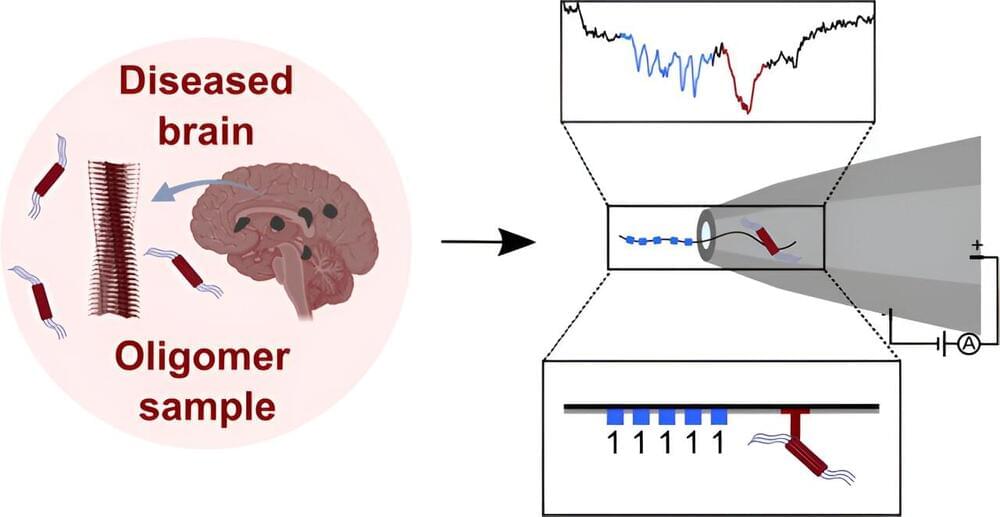A team of chemists, microbiologists and physicists at the University of Cambridge in the U.K. has developed a way to use solid-state nanopores and multiplexed DNA barcoding to identify misfolded proteins such as those involved in neurodegenerative disorders in blood samples. In their study, reported in the Journal of the American Chemical Society, the group used multiplexed DNA barcoding techniques to overcome problems with nanopore filtering techniques for isolating harmful oligomers.
Prior research has shown that the presence of harmful oligomers in the brain can lead to misfolding of proteins associated with neurodegenerative diseases such as Parkinson’s and Alzheimer’s disease. Medical researchers have been looking for a way to detect them in the blood as a way to diagnose neurodegenerative disease and to track the progression once it has been confirmed.
Unfortunately, finding them in complex mixtures such as blood has proven to be a daunting task. One approach has shown promise—using nanopore sensors—but to date, they cannot track target oligomers as they speed through customizable solid-state nanopore sensors. In this new effort, the research team overcame this problem by using customizable DNA nanostructures.
